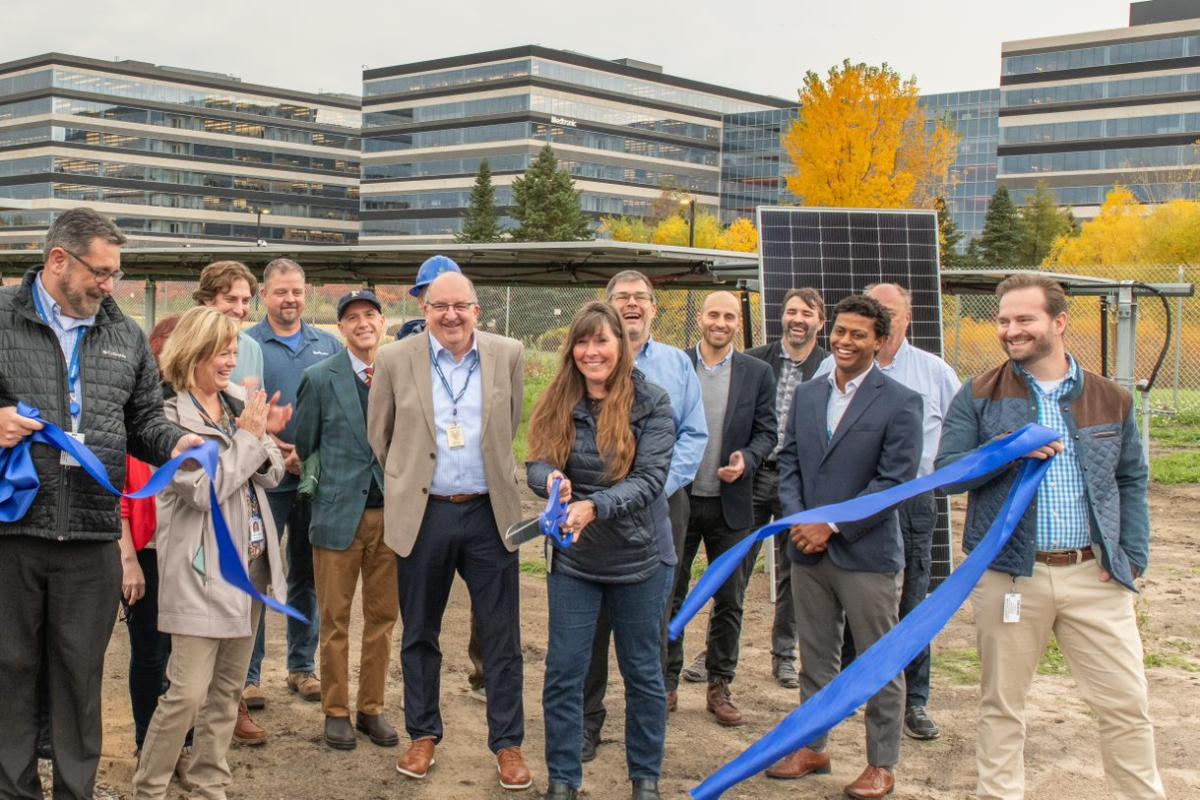Medtronic: Here Comes the Sun – 3 Things To Know About Our Solar Footprint
Our commitment to investing in renewable energy forms like solar is a bright idea in our sustainability toolkit

Our first solar farm opened in 2014 in Santa Rosa, California and our solar energy footprint across the globe has been growing ever since. In November 2023, we unveiled a solar energy farm at our Mounds View, Minnesota campus, a seven-acre site expected to generate more than 10% of the building’s annual electric needs. With this addition, we have ten Medtronic locations with on-site solar arrays.
Our longstanding commitment to renewable energy predates even our ambition to be net zero by 2045. We’ve invested in a variety of low-carbon energy sources such as purchasing green electricity from the grid or generating our own renewable electricity on site. Last year, we used approximately 414,300 megawatt hours (MWh) of renewable electricity – more than 46% of our total electricity usage. This accomplishment was in large part due to our solar arrays at our facilities around the globe.
Here are three things to know about how we’re using the sun to reduce our greenhouse gas emissions:
1. About one-quarter of our sites generate solar power — and more are planned.
Of the 94 Medtronic locations our company tracks around the world, 19 of them already have on-site solar generation. And there are 18 more projects we hope to complete in the near-term, said Daniel Sterner, a 20-year employee who leads our global energy, water, and utility infrastructure.
“They are relatively low-risk projects. We install them, flip the switch, and they’ll produce energy for us for years to come,” noted Sterner.
We’re putting solar infrastructure in place now so that we will have a positive impact and contribution to the greening of the different electricity grids our sites are connected to.
2. Our fleet of solar energy farms spans the globe.
Just as our company is embedded in all parts of the world, so is our commitment to producing green energy.
Our solar generation fields are often installed on roofs, which are otherwise unused spaces, said Daniel. Sometimes, we build carports and install solar panels on top, which offer an extra benefit for employees who drive to work. Some solar array systems generate 5% of a site’s electricity needs, while others are nearly 50%.
Our notable solar sites around the globe include:
- Juncos, Puerto Rico: Spanning 13 acres and outputting five megawatts at a given time, this site was first installed in 2017. Later that year, it was destroyed by Hurricane Maria. It reopened in 2021. The site produces clean energy for our Juncos facility and sends surplus power back to the grid for community use.
- Alajuela, Costa Rica: This 450-kilowatt site was built in under four months, our fastest execution to date. The U.S. Green Building Council recently awarded our facility here a LEED Platinum certification for the building operations and maintenance — a global recognition for green building design efforts.
- Lafayette, Colorado: One of our recent solar gardens to open, this was built on top of a carport. It’s a one-megawatt system, meaning it can produce up to 2 million kilowatt-hours annually. For reference, the average U.S. home consumes 10,500 kilowatt-hours per year so the energy produced in Lafayette is equivalent to powering 200 homes for an entire year.
3. Our ambitious energy goals are driving this work.
We are expanding our renewable footprint as we anticipate what’s ahead, said Sterner. He noted that very little construction is being done at our sites to install fossil fuel generation. Instead, we are prioritizing and investing in renewable energy, whether it’s solar, wind, hydroelectricity, or geothermal.
Last year, our Ireland and Italy sites began participating in renewable energy purchase programs with their local electric utility providers to achieve 100% renewable energy. And we’re just getting started!
Learn more about our efforts in our most recent Sustainability Report.

